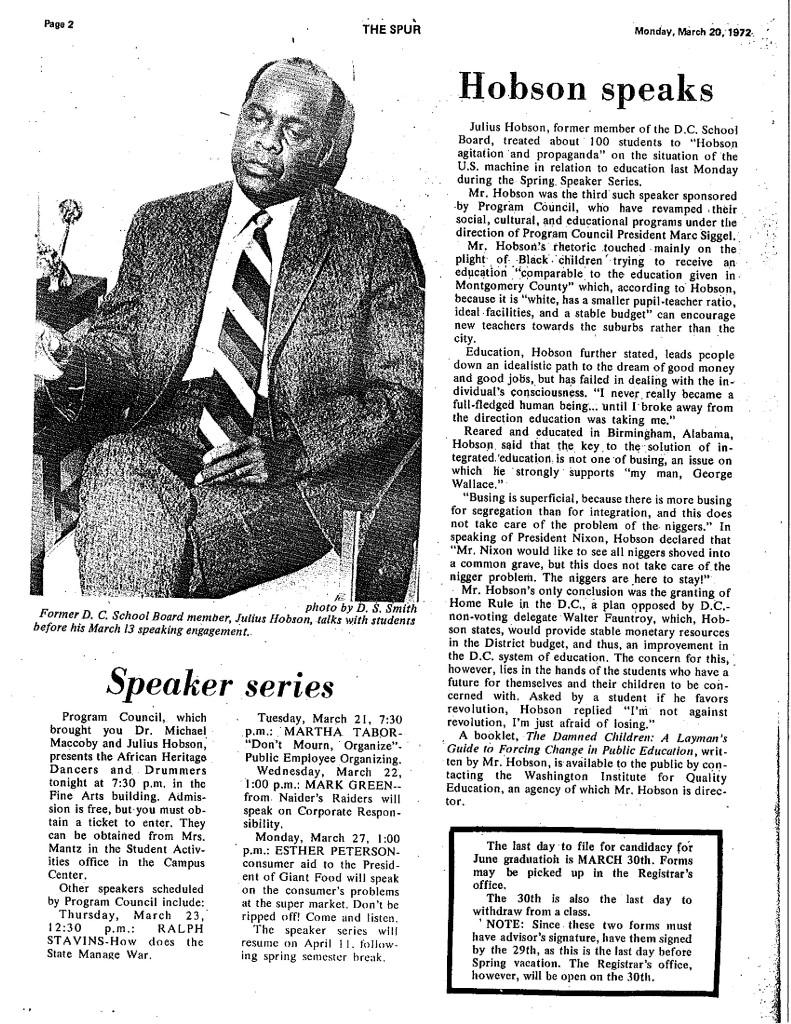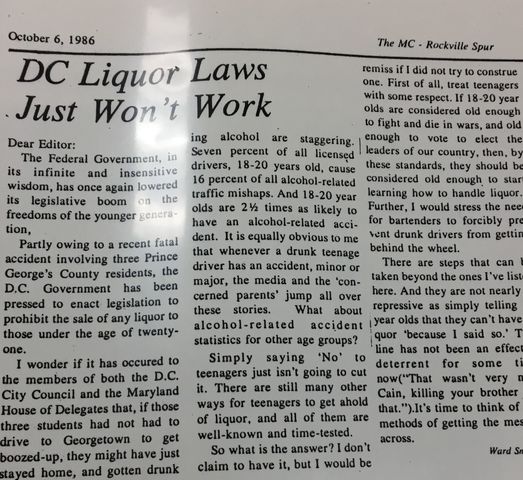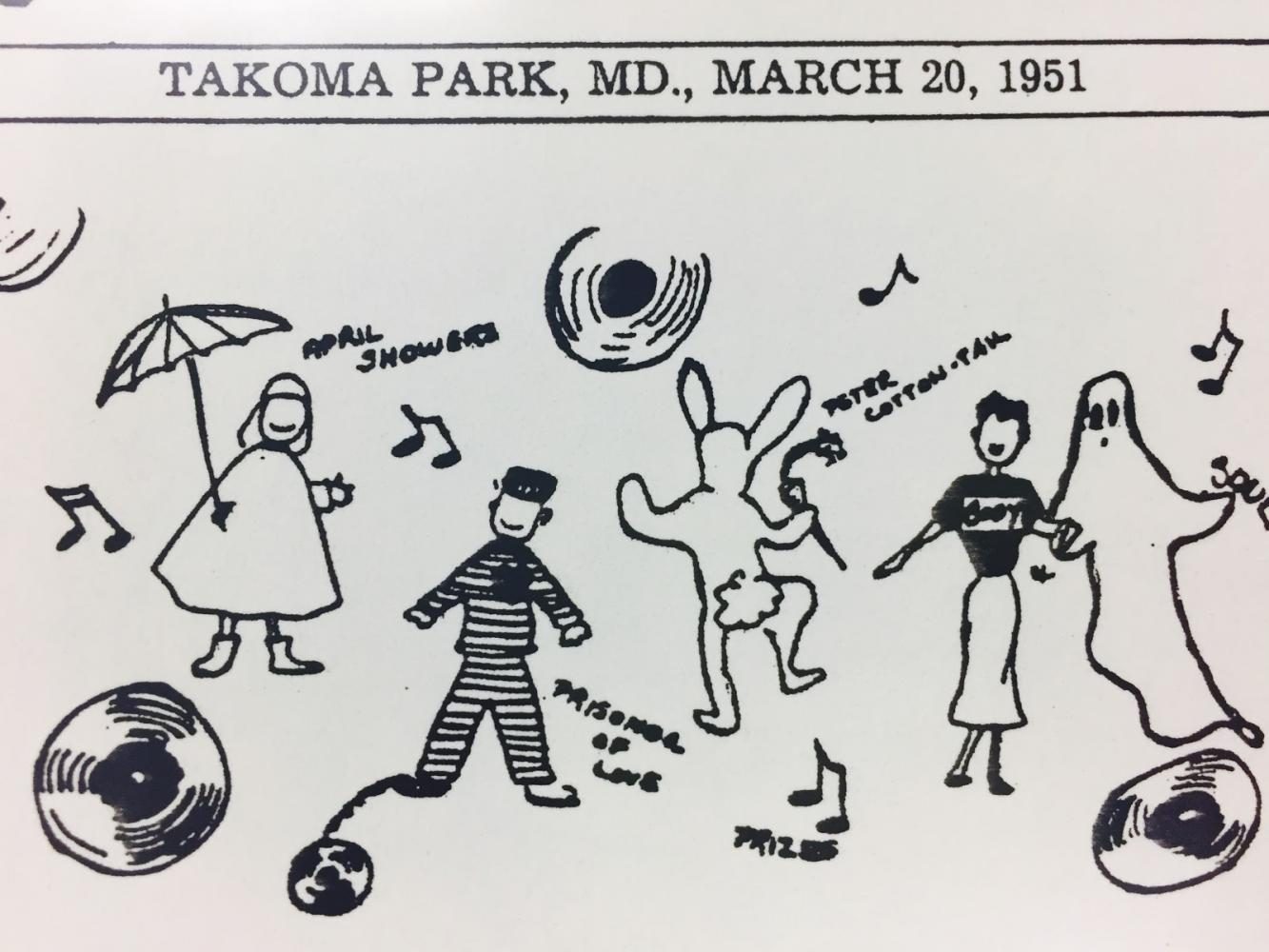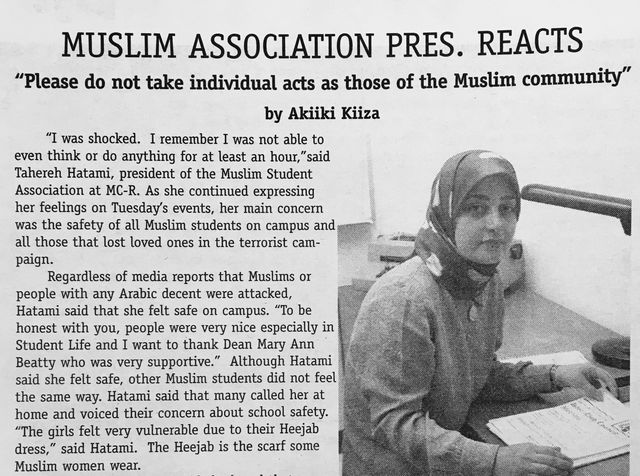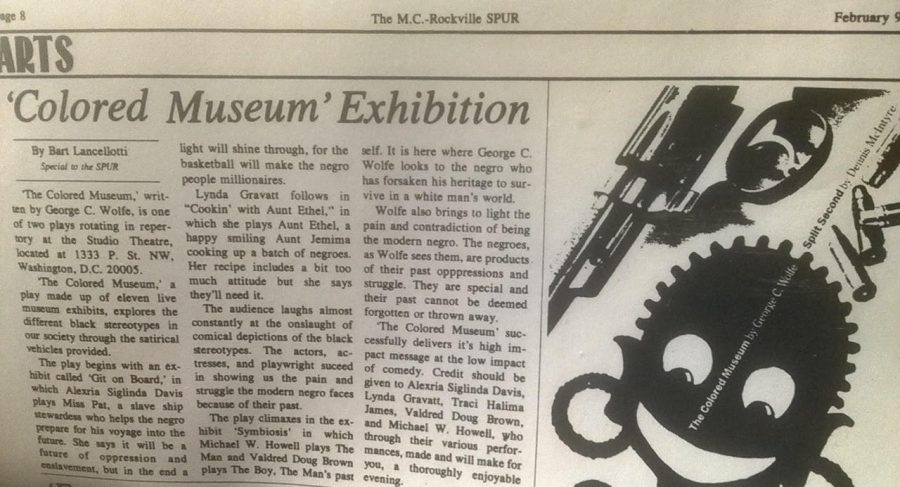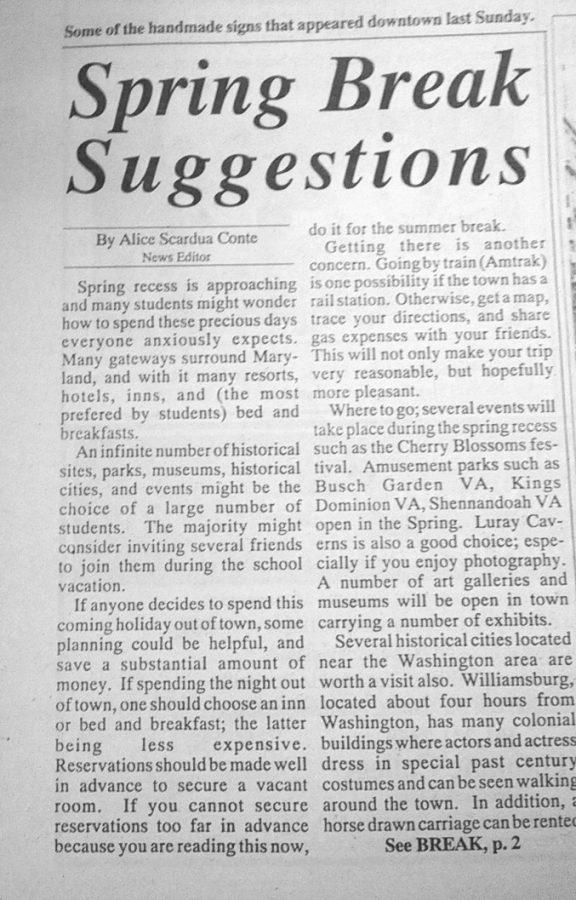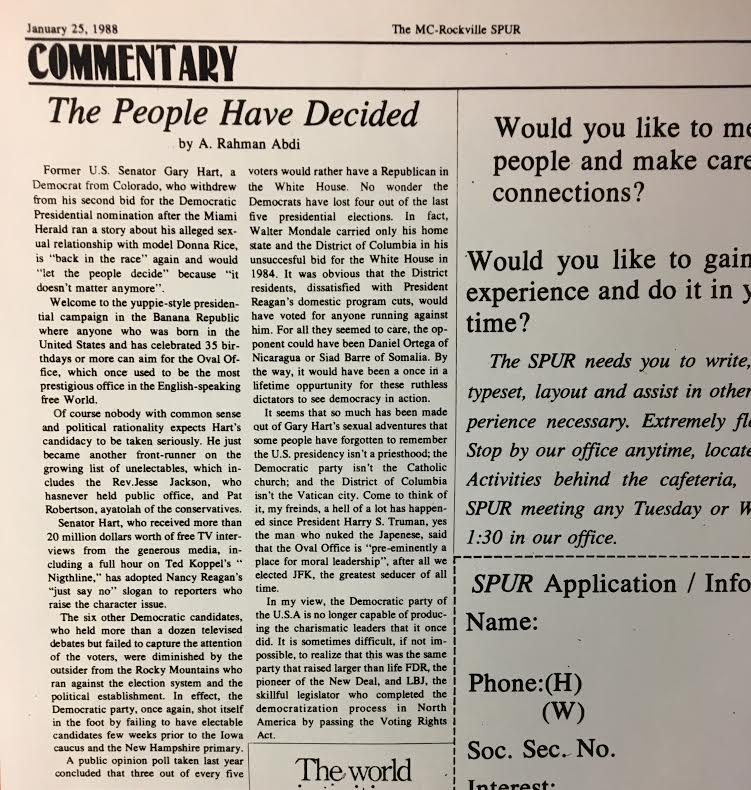March 20, 1972
Julius Hobson, former member of the DC School Board, treated about 100 students to “Hobson agitation and propaganda” on the situation of the US machine in relation to education last Monday during the Spring Speaker Series.
Mr. Hobson was the third such speaker sponsored by Program Council, who have revamped their social, cultural, and educational programs under the direction of Program Council President Marc Siggel.
Mr. Hobson’s rhetoric touched mainly on the plight of Black children trying to receive an education “comparable to the education given in Montgomery County” which, according to Hobson, because it is “white, has a smaller pupil-teacher ratio, ideal facilities, and a stable budget” can encourage new teachers towards the suburbs rather than the city.
Education, Hobson further stated, leads people down an idealistic path to the dream of good money and good jobs, but has failed in dealing with the individual’s consciousness. “I never really became a full-fledged human being…until I broke away from the direction education was taking me.”
Reared and educated in Birmingham, Alabama, Hobson said that the key to the solution of integrated education is not one of busing, an issue on which he strongly supports “my man, George Wallace.”
“Busing is superficial, because there is more busing for segregation than for integration, and this does not take care of the problem of the niggers.” In speaking of President Nixon, Hobson declared that “Mr. Nixon would like to see all niggers shoved into a comman grave, but this does not take care of the nigger problem. The niggers are here to stay!”
Mr. Hobson’s only conclusion was the granting of Home Rule in D.C., a plan opposed by D.C. non-voting delegate Walter Fauntroy, which, Hobson states, would provide stable monetary resources in the District budget, and thus, an improvement in the D.C. system of education. The concern for this, however, lies in the hands of the students who have a future for themselves and their to be concerned with. Asked by a student if he favors revolution, Hobson replied “I’m not against revolution, I’m just afraid of losing.”
A booklet, The Damned Children: A Layman’s Guide to Forcing Change in Public Education, written by Mr. Hobson, is available to the public by contacting the Washington Institute for Quality Education, an agency of which Mr. Hobson is director.


